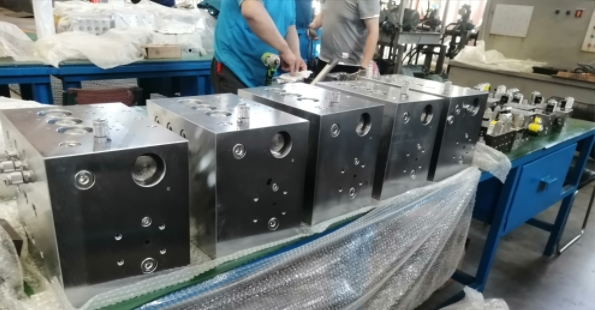Understanding Hydraulic Valve Blocks: The Heart of Efficient Hydraulic Systems
10/24/20241 دقيقة قراءة


Introduction to Hydraulic Manifold block
Hydraulic valve blocks are integral components in the functioning of hydraulic systems, serving as the brain behind fluid control. These blocks ensure that hydraulic fluid flows smoothly to various parts of a machine, providing the necessary power and control for its operations. Understanding the role and functionality of hydraulic valve blocks can significantly enhance the efficiency and effectiveness of hydraulic systems.
Functions and Benefits of Hydraulic Valve Blocks
The primary function of a hydraulic valve block is to manage the flow of hydraulic fluid within a system, directing it to different actuators and components as needed. This is achieved through a series of valves integrated into the block, allowing for precise control over direction, speed, and pressure. Hydraulic valve blocks offer several key benefits including:
Improved Efficiency: By optimizing the flow of hydraulic fluid, these blocks help minimize energy waste.
Enhanced Control: Operators can manage multiple functions from one central component, streamlining operations.
Increased Reliability: Robust design elements in hydraulic valve blocks ensure they perform well under high-pressure conditions, reducing the risk of system failures.
Choosing the Right Hydraulic Valve Block
Selecting the appropriate hydraulic valve block is crucial for ensuring efficient operation in any hydraulic system. Factors to consider include:
System Requirements: Understand the flow rates, pressure ratings, and specific functions your system requires.
Compatibility: Ensure that the valve block is compatible with other components in the hydraulic system.
Material and Build Quality: Opt for hydraulic valve blocks made from high-quality materials that can withstand the demands of your specific systems.
In conclusion, hydraulic valve blocks are vital for achieving efficient control in hydraulic systems. By facilitating the proper flow of hydraulic fluid, they enable machinery to operate at peak performance. Understanding their functions, benefits, and how to choose the right type can significantly improve the effectiveness of hydraulic applications.
